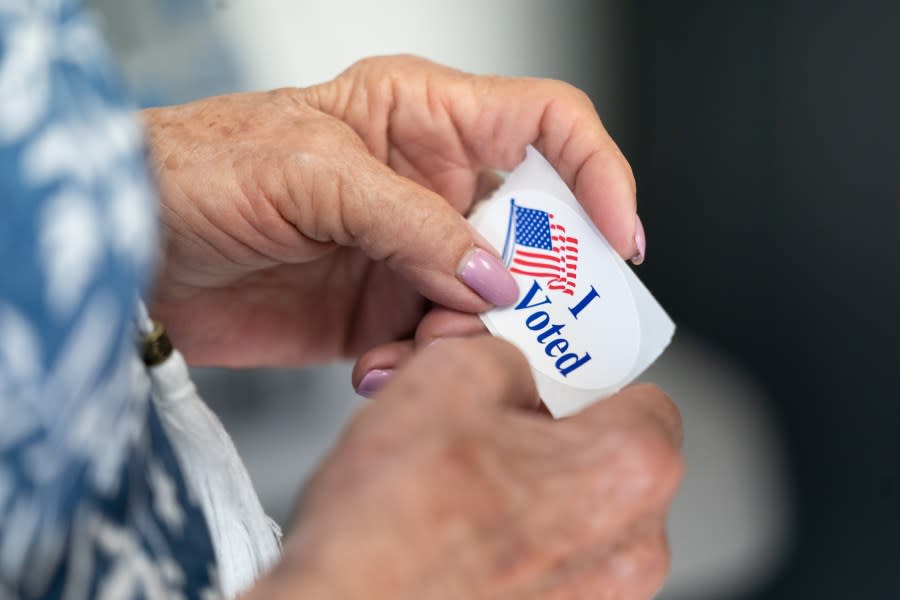Montana’s high court strikes down voting reform laws

The Montana Supreme Court on Wednesday ruled a series of voting reform laws passed by the state Legislature in 2021 violate the fundamental right to vote.
The ruling, issued Wednesday, reaffirms a 2022 lower court ruling that found four voting-related bills from the 2021 Legislature session are unconstitutional and cannot be enforced.
The case combined a challenge against Montana Secretary of State Christi Jacobsen brought by the Montana Democratic Party and various youth organizations with a case from Western Native Voice and other Native American-focused organizations.
The four bills in question included one that eliminated same-day voter registration and closed registration at 12 p.m. the day before an election. Pointing to the lower court’s finding that same-day registration was “wildly popular” and tens of thousands have used it to vote, the state’s high court affirmed the law “interferes with fundamental voting rights.”
One of the laws prevented a 17-year-old individual who would be 18 by election day from receiving and voting with an absentee ballot, which would’ve contradicted current state law accepting new voters’ ballots by mail if they were 18 by election day.
The court said the law places an “unreasonable burden” on electors’ fundamental voting rights.
The court gave the same reason for striking down another law that prevented the use of student ID cards as acceptable forms of identification for in-person voting.
The fourth law required Montana’s secretary of state to adopt administrative rules to prevent the paid collection and submission of absentee ballots by other individuals or groups, per court filings. The lower court found the ballot collection methods are often used in remote areas and Native reservations due to their distance to polling places or for those with disabilities.
Montana’s Supreme Court ruled it is still illegal to pay ballot collectors by the number of ballots they collect, but “paying employees for duties that include general ballot collection will be allowed.”
“Broadly excluding assistance to disadvantaged voters by collection and submission of previously voted, sealed ballots interferes with those voters’ fundamental voting rights and is therefore unconstitutional,” the state’s high court wrote in a synopsis opinion.
The Montana Secretary of State’s Office said the secretary is “devested by the gross injustice” and “assures Montanans that her committee to reasonable election integrity will not waver.”
“State and county election officials have been punched in the gut. Well-funded groups deceived the court and the media in a sad way,” the office said in a statement to The Hill.
The American Civil Liberties Union (ACLU) of Montana celebrated the ruling on Wednesday, calling it a “great victory” for their clients and Native Americans in Montana.
“Once again, courts have struck down the Montana Legislature’s attempts to unconstitutionally burden the constitutional rights of Native Americans across the state,” said Jonathan Topaz, staff attorney at the ACLU’s Voting Rights Project.
Ronnie Jo Horse, the executive director of the nonprofit Western Native Voice, said he is “pleased” with the ruling.
“By striking down laws that impede Native American participation in our electoral process, the court reinforces the principle of equitable access to voting services and the protection of the rights for all voters, especially those residing on reservations where voting barriers are much higher,” he wrote in a statement.
Story was updated at 7:23 p.m.
For the latest news, weather, sports, and streaming video, head to The Hill.


